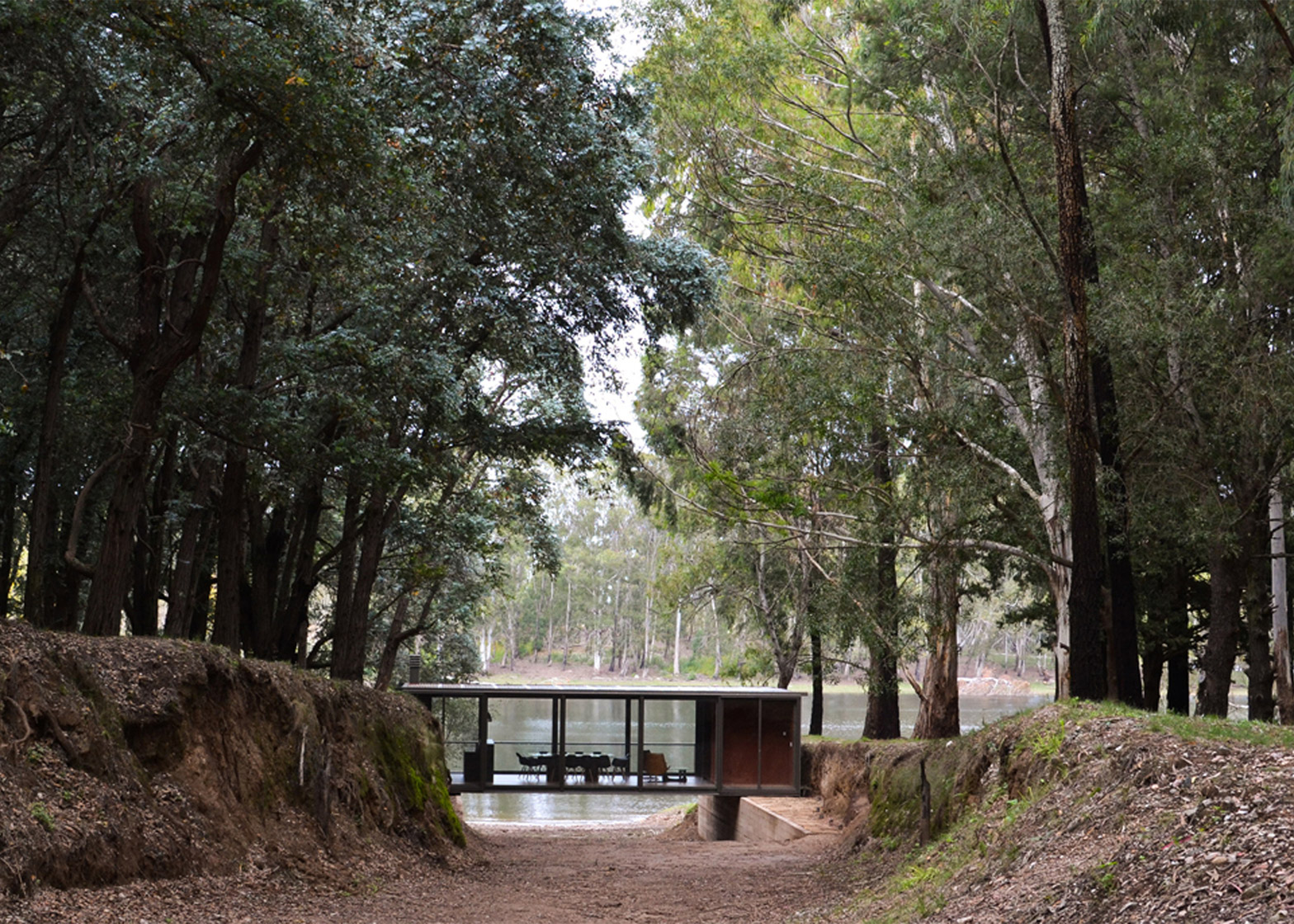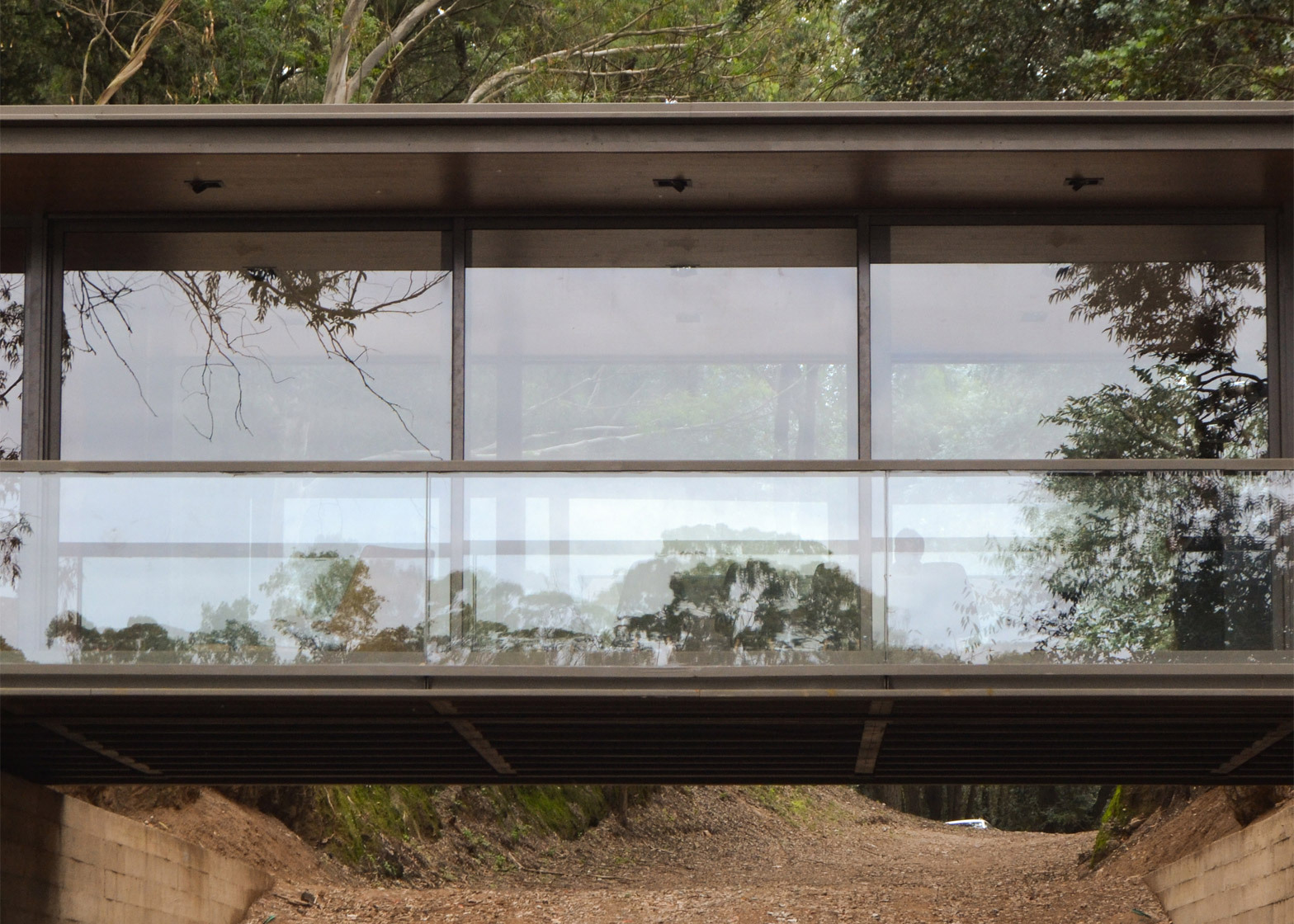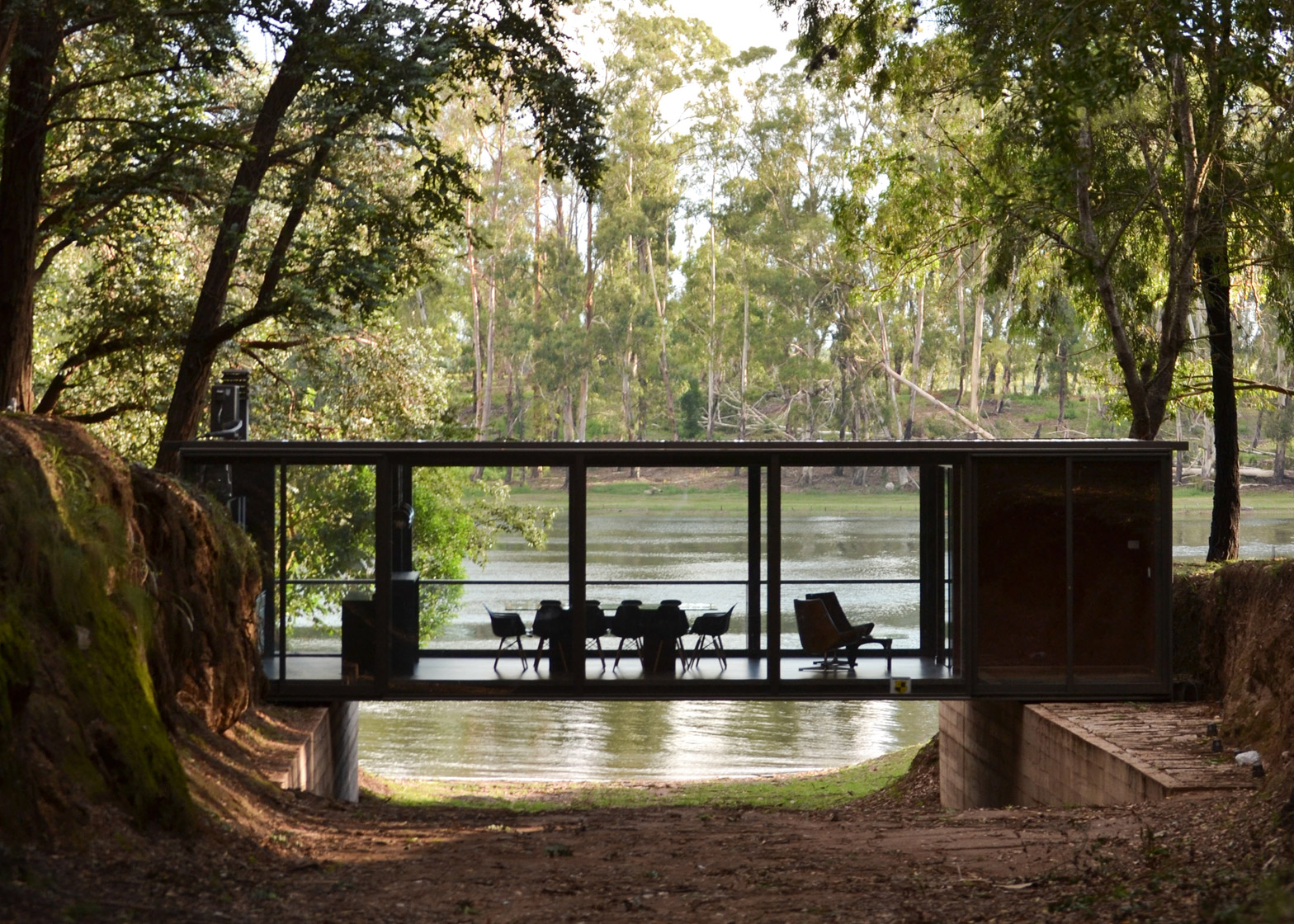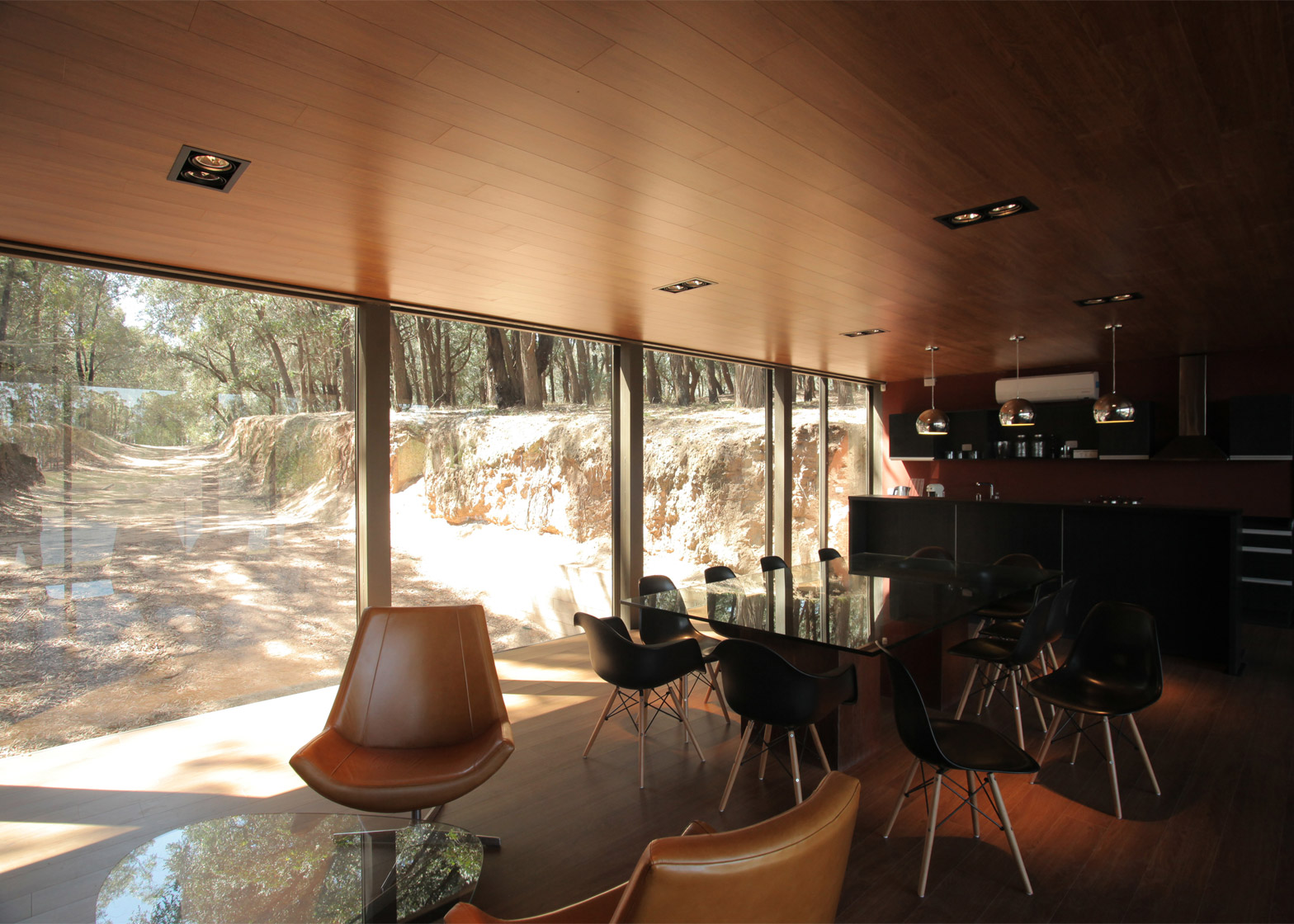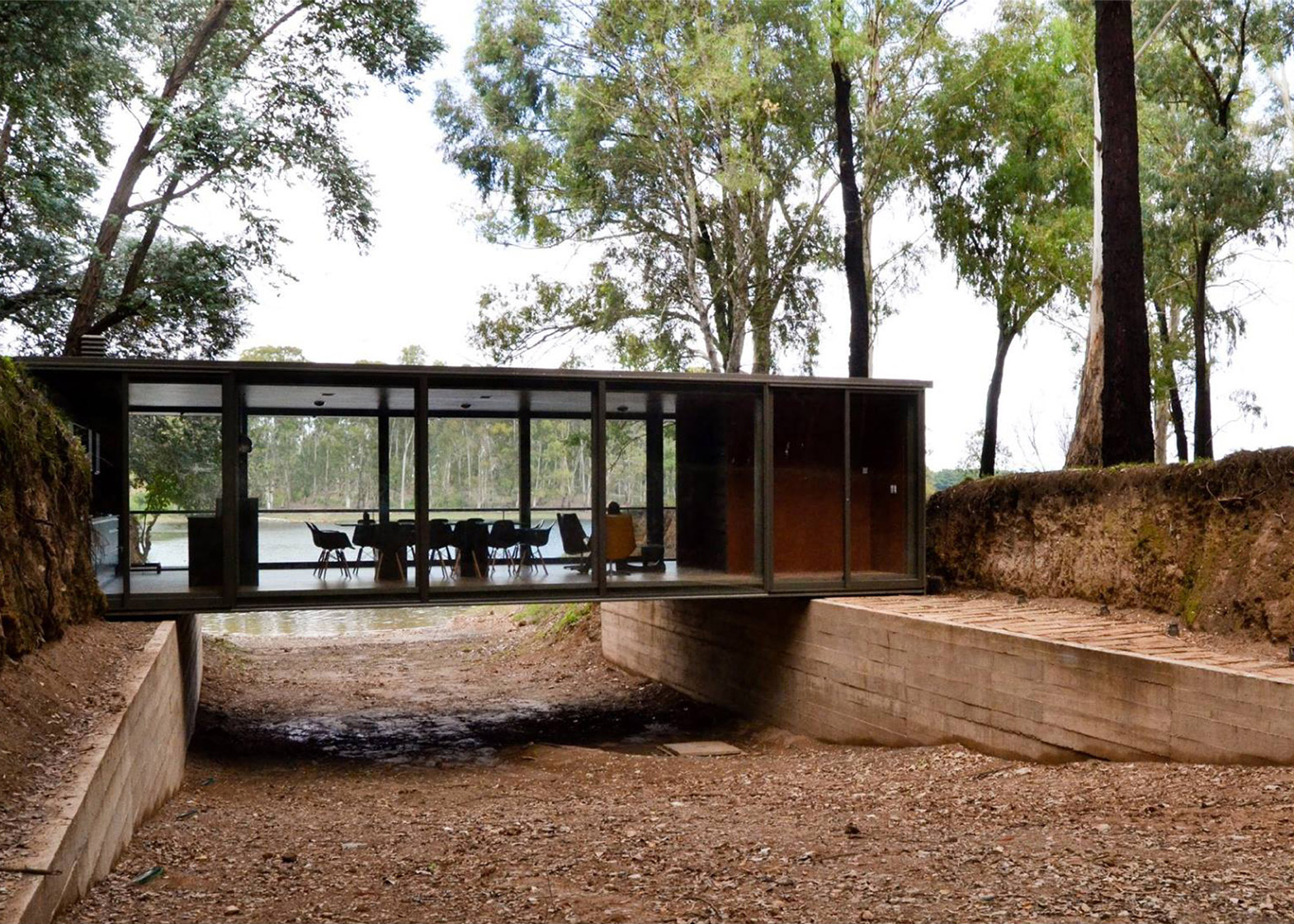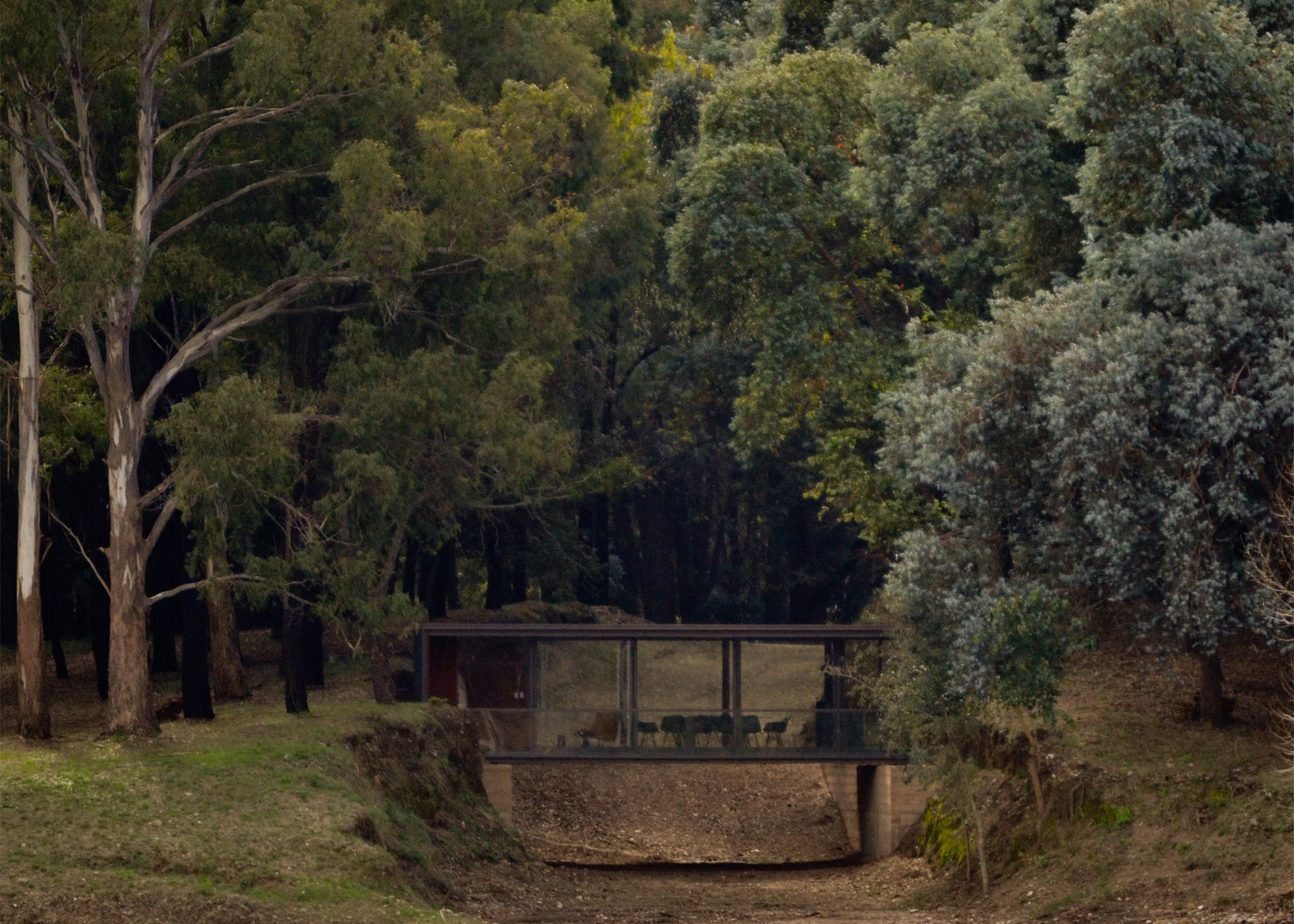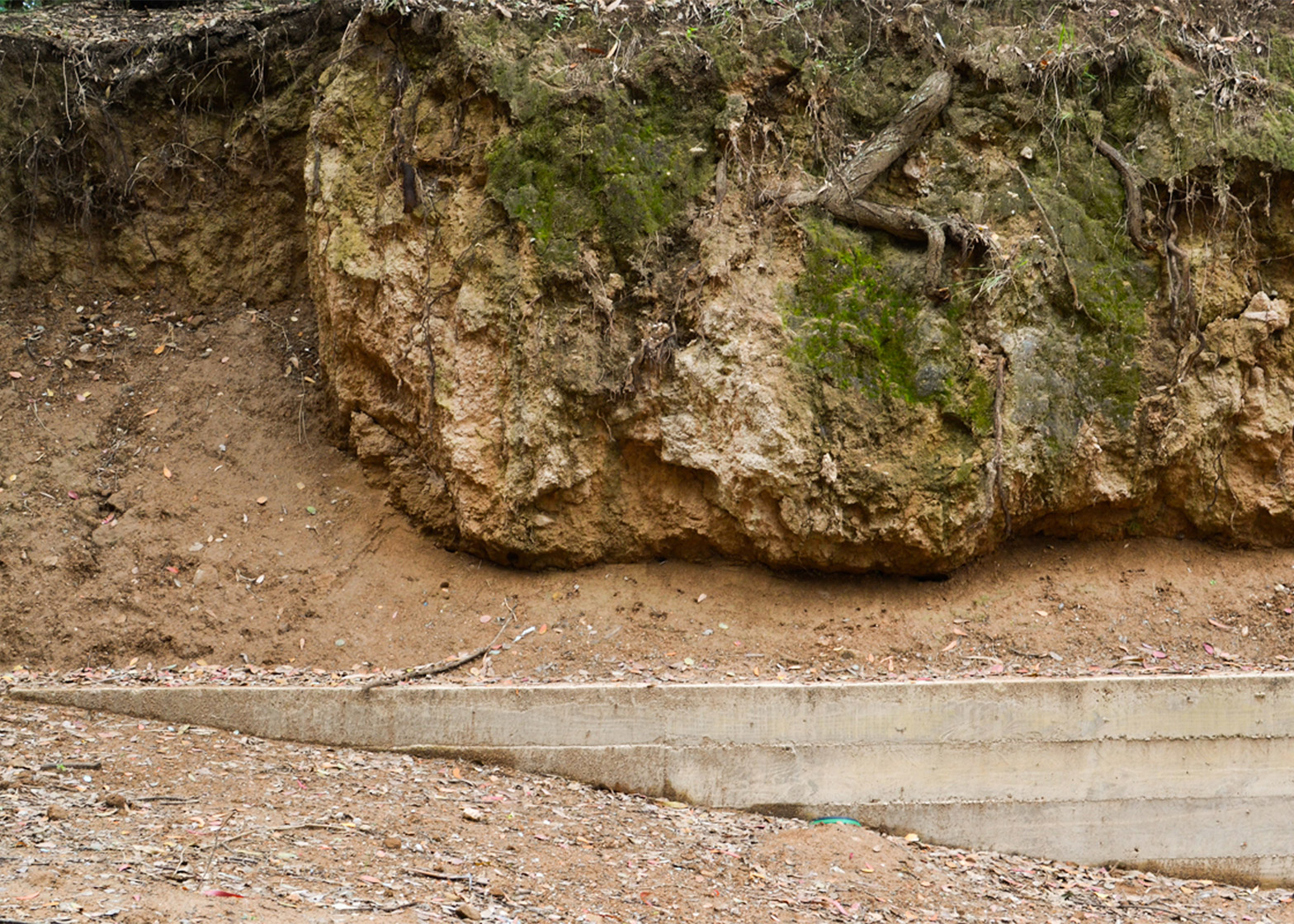This glazed pavilion-like living space by Argentinian studio Alarciaferrer Arquitectos traverses a shallow ravine that runs through a eucalyptus forest to the shore of Lake Los Molinos (+ slideshow).
Designed by studio founders Joaquin Alarcia and Federico Ferrer Deheza as a "suspended bridge", Pabellón-Puente (pavilion bridge) provides a communal living room for a holiday development on the edge of the lake in northern Argentina.
The rectilinear building has two glass facades and balances between two textured concrete walls to give simultaneous views of the forest and water. The long open-plan building provides a dining area, lounger and kitchen.
"The place is a privileged landscape where the eucalyptus forest provides a unique atmosphere," said Alarcia and Deheza. "The glass enclosure generates reflection or full transparency depending on daylight."
The volume is supported at either end by two concrete walls, which have been pigmented and textured to harmonise with its muddy setting.
The weight of the building is supported by metal Vierendeel trusses – named after Belgian inventor engineer Arthur Vierendeel and that feature square openings between the horizontal members – which span the shallow channel.
Swiss architect Christian von Düring also made use of this bridging formation for a house in Switzerland, which features an upper storey that straddles two ground floor volumes, while Bjarke Ingels' firm recently unveiled plans to build a twisted art gallery that bridges a Norwegian river.
"The result is a suspended bridge located transversely to the channel and supported on both sides by two concrete walls that define and give scale to the intervention," said the architects.
The interior is given a mid-century Modern aesthetic with dark wood panelling and orange-toned lighting, and is furnished with Eames dining chairs, glass tables and camel-coloured leather upholstery.
Photography is by Lucas Carranza.
Project credits:
Architects: Joaquin Alarcia, Federico Ferrer Deheza
Engineer: German Sarboraria
Construction: Pablo Parino

